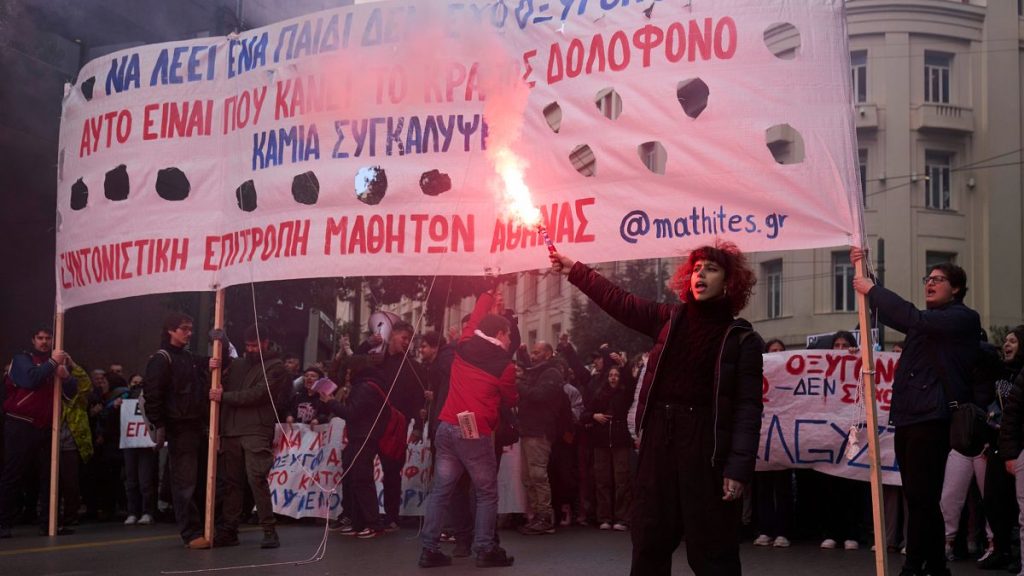Tragedy Strikes: The Tempi Rail Crash in Greece
In the early hours of February 28, 2023, a devastating head-on collision between a freight train and a passenger train near Tempi, Greece, claimed the lives of 57 individuals. This tragic event sent shockwaves through the nation, evoking widespread grief and anger. The collision, occurring on the vital rail line connecting Athens and Thessaloniki, highlighted long-standing concerns about the country’s rail infrastructure, which had been neglected following a prolonged financial crisis. The immediate aftermath saw an outpouring of emotion, with communities rallying to support the victims’ families and demand accountability.
Emergence of New Evidence: Fueling Public Outrage
The public’s sorrow turned to outrage with the release of new audio recordings suggesting that many victims perished in a post-collision fire, rather than the crash itself. This revelation contradicted initial reports, deepening suspicions of negligence and mismanagement. The recordings, which included a haunting plea of "I Have No Oxygen," became a rallying cry for protesters. This evidence not only intensified the demand for justice but also underscored the potential systemic failures that contributed to the tragedy.
Nationwide Protests: A Call for Change
The release of the audio sparked widespread protests across Greece, with tens of thousands marching in over 100 cities, marking the largest demonstrations in a decade. In Athens, high school and university students, alongside teachers, blocked central streets, chanting "Murderers!" Their anger was directed not only at the Railways but also at the government, which they accused of delaying the investigation. A teacher, Pantazi, encapsulated the mood, stating, "We fight for those who come after us, for a better future, even if we cannot enjoy it ourselves."
Government Response and Allegations: A Tale of Controversy
The Greek government, led by Kyriakos Mitsotakis, faced intense scrutiny despite its re-election and promises of rail reform. The slow progress of the investigation fueled accusations of a cover-up, which the government denied. Victims’ families circulated a statement alleging the train carried illegal chemicals, exacerbating the fire. These claims added layers of complexity to the tragedy, pointing to potential criminal negligence and corruption.
Ongoing Protests and Future Prospects
Protesters continued their demonstrations, despite some clashes with authorities. On January 26, a mostly peaceful rally in Athens saw Hundreds gather, though a group of hooded individuals attacked police, resulting in arrests. Student Odisseas Gountaras emphasized the broader implications, stating, "We protest against policies that prioritize profits over lives." The movement looks set to persist, with a significant protest planned for February 28, 2024, the second anniversary of the crash.
Conclusion: A Movement for Accountability and Change
The Tempi rail tragedy has become a catalyst for a broader movement demanding accountability and systemic change in Greece. The public’s determination to seek justice reflects a deeper desire for transparency and safety. As the nation approaches the anniversary of the crash, the continued protests underscore the enduring impact of the tragedy and the resolve to ensure such an event never recurs.












